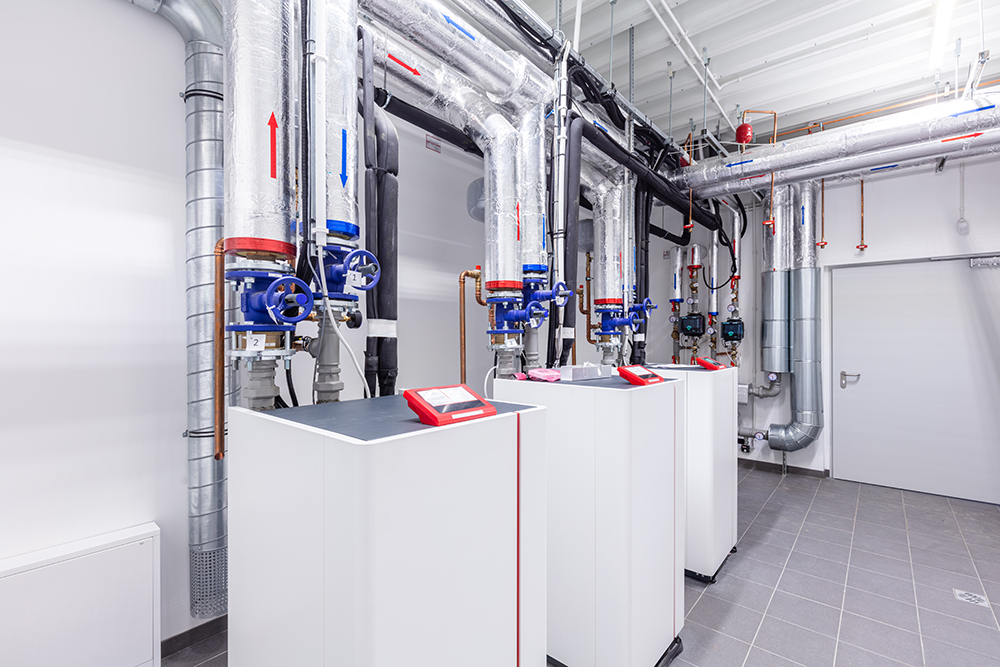
When it comes to maintaining comfortable temperatures during colder months, heating services play a vital role in ensuring functionality, efficiency, and safety. However, the needs and approaches for residential and commercial properties vary greatly, thanks to differences in building size, purpose, equipment, and regulatory requirements. This blog explores how heating services differ across these spaces and the factors that influence these distinctions. By the end of this post, you will clearly understand why specialized expertise is essential when addressing heating systems for these two distinct property types.
The first and most apparent difference between residential and commercial heating services lies in the size and scope of the project. Residential properties typically encompass single-family homes, apartments, or townhouses, where the heating system is designed to serve a relatively small and defined area. These systems are usually compact, simpler to maintain and cater to occupants' comfort.
On the other hand, commercial properties range from office buildings and retail spaces to warehouses and industrial units. The heating systems in these environments must accommodate larger spaces with varying purposes. This often means installing industrial-grade heating solutions like boilers, furnaces, or rooftop units. Additionally, commercial heating systems may integrate advanced technologies like zoning systems that enable precise temperature control across different building areas.
Another significant difference between residential and commercial heating services is the type of equipment utilized. For residential spaces, the most common heating systems include furnaces, heat pumps, and, in some cases, radiant floor heating. These systems are typically powered by electricity, natural gas, or oil and are straightforward in design and installation.
Commercial heating systems are far more complex. Depending on the property's use, they often include industrial boilers, large-scale HVAC systems, and specialized equipment. For instance, hotels and hospitals might require hydronic heating systems to provide heat and hot water for operational purposes. Manufacturing facilities may need systems capable of maintaining specific temperatures for production processes.
Due to their demanding workloads, the durability and efficiency of commercial heating equipment are critical. Residential systems, while built to last, do not face the same level of wear and tear or usage intensity as their commercial counterparts.
The installation and setup of heating systems further highlight the divide between residential and commercial heating services. For residential properties, installing a furnace or heat pump may take just a few days, involving minimal disruption to the household. The process generally requires small-scale ductwork, standard fittings, and limited adjustments based on the property's layout.
Commercial installations, however, are far more labor-intensive. They demand customized ductwork and adherence to rigorous building codes, and they often require coordination with multiple contractors to integrate larger systems. Larger projects may also involve structural modifications to install equipment like rooftop units or centralized boilers.
Maintaining a heating system is essential for both residential and commercial spaces, but the frequency and complexity of maintenance tasks differ remarkably. Most residential heating systems require annual tune-ups to operate efficiently and safely. Maintenance tasks often include simple filter replacements, duct cleaning, and efficiency checks.
Commercial heating services, on the other hand, demand a more robust approach. Maintenance schedules are typically more frequent due to the constant operation and larger scope of the systems they support. Inspections often involve advanced diagnostic tools to assess performance across zones, check air quality, and prevent operational failures.
Another critical distinction is the need for emergency service availability. While a residential heating issue can disrupt a family's routine, a commercial heating failure could lead to significant downtime, lost revenue, or even safety hazards for employees and customers. Commercial service contracts often include 24/7 emergency response options for swift resolution.
Both residential and commercial heating services must adhere to regulations, but commercial systems operate under stricter codes and safety mandates. Residential heating installations generally follow local building and fire safety codes, ensuring that systems are safe for personal use.
However, commercial properties must comply with broader regulations covering occupational safety, energy efficiency, and environmental standards. For example, in many regions, commercial properties must meet strict emissions standards, particularly if they operate large boiler systems or use fuels like natural gas. Inspections and certifications for heating systems in commercial spaces are also more frequent, reflecting their potential impact on the safety of larger groups of people.
One thing is clear: residential and commercial heating systems come with their unique demands. While residential systems prioritize simplicity and comfort, commercial systems require complex solutions tailored to the building’s operational needs. Because of these distinctions, it is essential to engage professionals who specialize in the specific type of heating services you require.
For residential systems, choosing a contractor with experience in optimizing home comfort can save you money and improve your overall quality of life. For commercial properties, working with specialists who understand the intricacies of advanced systems, compliance regulations, and large-scale projects is critical for long-term success.
Whether it is a cozy home or a sprawling office complex, effective heating is at the heart of maintaining comfortable and safe environments. By understanding the differences in heating services, you are one step closer to making informed decisions that suit your property’s specific needs.
Finding the right team makes all the difference regarding expert heating solutions. Ensure you are utilizing specialists who understand the nuances of residential or commercial systems and can propose tailored solutions for your property. After all, the right heating system does not just keep you warm; it boosts efficiency, reduces costs, and enhances overall satisfaction.